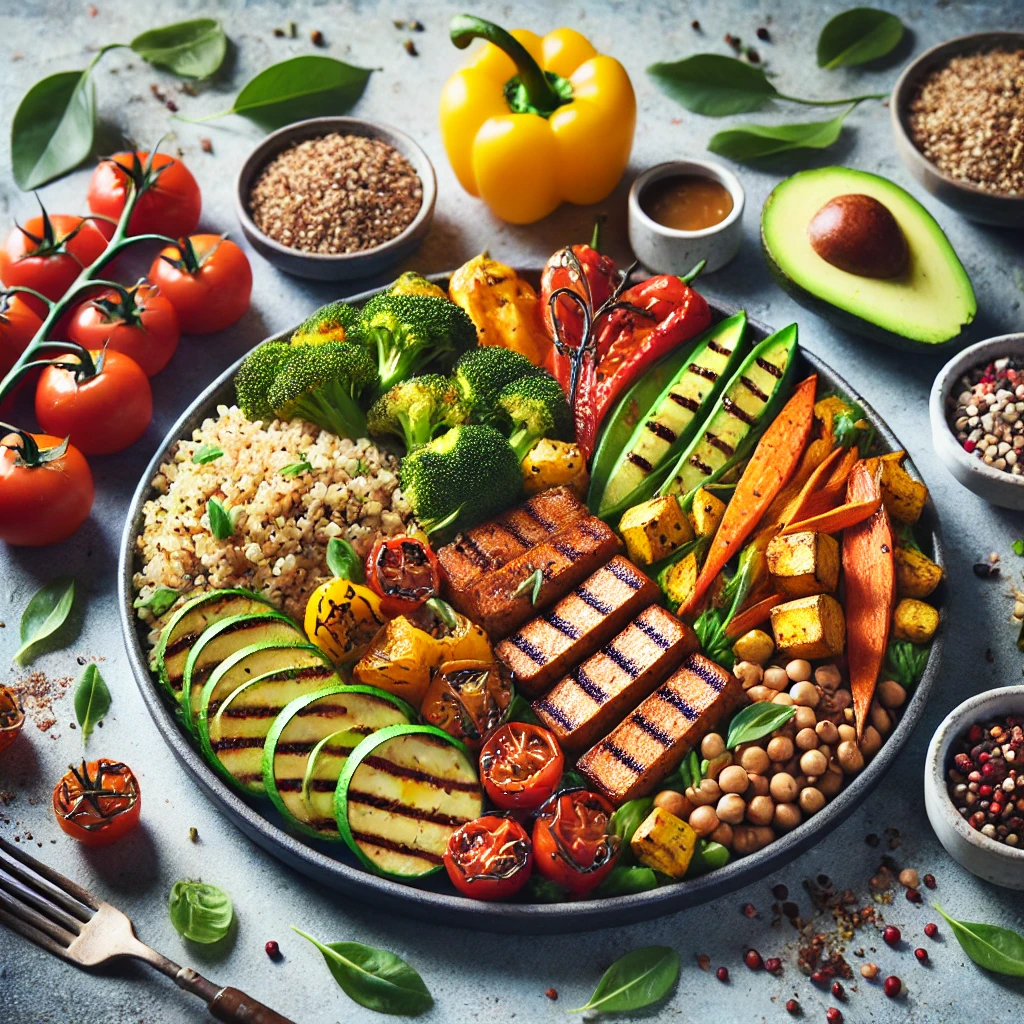*This post may contain affiliate links for which I earn commissions.*
Quorn products are a type of meat substitute made primarily from mycoprotein, a protein-rich fungus found in soil. Developed in the 1980s by a British company, Quorn has grown in popularity, especially among vegetarians, vegans, and those looking to reduce meat in their diets without compromising on taste and texture. Quorn’s journey started with the goal of creating a sustainable and nutritious protein source. Over the decades, the range of Quorn products has expanded significantly. Today, you’ll find everything from Quorn nuggets and sausages to mince and burgers in supermarkets worldwide.
Quorn is Versatile
The versatility of Quorn products makes them a hit in many households. They can be used in various dishes, catering to different culinary tastes and preferences. Whether it’s a quick stir-fry, a hearty stew, or a simple sandwich filling, there’s likely a Quorn product that fits the bill.
Quorn’s target market originally focused on vegetarians, but it has broadened its reach. These products appeal to flexitarians—those who eat meat but want to include more plant-based options—and even omnivores who are looking for healthier or more sustainable alternatives to meat. The increased awareness of environmental issues and health benefits associated with plant-based diets has further boosted Quorn’s popularity.
In short, Quorn offers a tasty and versatile alternative to meat, helping people make healthier and more eco-friendly choices without sacrificing flavor or convenience. This introduction gives us a foundation to explore whether Quorn products are truly a healthy choice.

Nutritional Profile of Quorn Products
Quorn products boast a unique nutritional profile that makes them stand out among other meat substitutes. The primary ingredient, mycoprotein, is rich in protein and fiber while being low in fat, making it a beneficial addition to many diets.
Let’s dive into the macronutrients first. Quorn products generally offer a high protein content, comparable to that of chicken or beef, but with significantly less fat. Most Quorn products contain around 11g to 15g of protein per 100g serving, which can help support muscle growth and repair.
Regarding fats, Quorn products are especially appealing to those looking to reduce their intake of saturated fats. Typically, these products contain less than 3g of fat per serving, much of which is unsaturated. This makes Quorn a heart-friendly option compared to traditional meats that are higher in saturated fats.
Carbohydrates in Quorn products are also minimal, making them suitable for low-carb or keto diets. The fiber content, on the other hand, is something that many conventional meats lack. The inclusion of fiber aids in digestion and helps maintain a healthy gut, which can be a significant advantage for overall health.
Switching to micronutrients, Quorn is often fortified with essential vitamins and minerals. Depending on the product, you might find added iron, zinc, and B vitamins, which are crucial for various bodily functions, including energy production and immune system support.
A head-to-head comparison with traditional meat shows that Quorn can hold its ground nutritionally. While meats like beef and pork are rich in protein, they often come with higher calories and fats. Quorn offers a leaner alternative without compromising on essential nutrients.
When considering Quorn’s nutritional value, it’s also important to look at the serving sizes and how they fit into daily nutritional values. Serving sizes for Quorn products typically hover around 75g to 125g, making them easy to integrate into various meals while keeping track of your dietary goals.
Understanding these nutritional aspects can help you make informed decisions about including Quorn in your diet. Accurate knowledge empowers you to balance your meals effectively and possibly even improve your overall health.
Health Benefits of Consuming Quorn
Quorn products come with a host of health benefits, making them an appealing choice for those looking to improve their diet. The high protein content is one of the primary advantages of incorporating Quorn into your meals. Adequate protein intake is essential for muscle maintenance and repair, especially for those leading active lifestyles or engaging in regular exercise. Quorn offers a way to get that needed protein without the added fat found in many meat products.
One of the key health benefits of Quorn is its low saturated fat content. Diets high in saturated fats are linked to various health issues, including heart disease. By choosing Quorn, you’re opting for a food that supports heart health. Quorn products are designed to be low in bad fats while providing the necessary good fats your body needs to function properly.
Another benefit is the fiber content. Quorn products contain dietary fiber, which is essential for a healthy digestive system. Fiber helps regulate bowel movements, reduce cholesterol levels, and sustain a feeling of fullness that can prevent overeating. For many people, adding Quorn to their diet could be a simple way to increase daily fiber intake.
Quorn offers allergen-friendly options, making them a safe choice for individuals with specific dietary restrictions. Many Quorn products are gluten-free, soy-free, and dairy-free. This versatility means you can enjoy a varied diet even if you have food allergies or intolerances.
Balancing blood sugar levels is another area where Quorn products can be beneficial. They have a low glycemic index, making them ideal for those who need to monitor their blood sugar, such as individuals with diabetes or those inclined towards healthier carbohydrate choices.
Including Quorn in your diet isn’t just about nutritional stats; it’s also about how you feel. Many users report increased energy levels and overall improved well-being when they switch to a more plant-based diet featuring Quorn. Knowing that you’re making a health-conscious decision can contribute to a positive mindset and overall life satisfaction.
These benefits make Quorn a suitable addition to your dietary plan, offering improvements in several dimensions of health.
Potential Health Risks and Concerns
As with any food, it’s important to consider the potential health risks and concerns associated with Quorn products. For some, mycoprotein, the primary ingredient in Quorn, may cause adverse reactions. While it is generally safe for most people, there have been reports of allergic reactions ranging from mild to severe.
Digestive issues are another area of concern. Some people may experience gastrointestinal discomfort such as bloating, gas, or cramps after consuming Quorn. This could be due to the high fiber content or certain components of mycoprotein that are not well-tolerated by everyone.
Allergic reactions are a key concern. Symptoms can include hives, itching, and in rare cases, anaphylaxis, which is a severe and potentially life-threatening allergic reaction. If you have a history of food allergies, it’s advisable to consult a healthcare professional before incorporating Quorn into your diet.
It’s also worth considering the long-term effects of regularly consuming mycoprotein, as the research in this area is still emerging. While initial studies show that Quorn is a safe and nutritious option, more in-depth research is needed to fully understand any potential long-term health implications.
For most people, Quorn products can be a healthy and beneficial part of the diet, but it’s important to listen to your body and monitor how it responds. This means starting with smaller portions and gradually increasing your intake, especially if you’re trying Quorn for the first time. If any adverse reactions occur, it’s best to consult your healthcare provider for personalized advice.
Quorn and Weight Management
Managing weight can be a complex journey, and selecting the right foods plays a crucial role. Quorn products can be an effective tool for those focusing on weight management, given their nutritional benefits and versatility.
Calorie-wise, Quorn stands out as a low-calorie option compared to many meats. A typical serving of Quorn mince contains roughly 90kcal, making it easier to stay within your caloric goals. By incorporating Quorn into your meals, you can enjoy substantial portions without the high calorie count.
Quorn’s high-protein content helps in maintaining muscle mass while losing fat. Protein-rich foods are known for their ability to promote satiety, which can help control appetite and reduce overall calorie intake. Feel fuller for longer by integrating Quorn into balanced meals, reducing the temptation to snack between meals.
Another advantage is the fiber content in Quorn. Dietary fiber not only aids digestion but also contributes to that feeling of fullness. Including fiber-rich foods like Quorn can help curb the tendency to overeat, making it easier to manage weight.
Meal planning with Quorn can add variety and keep your diet interesting without feeling restrictive. Whether it’s Quorn stir-fry, Quorn chili, or even Quorn tacos, the possibilities are endless. This flexibility means you won’t get bored, which is a common pitfall when on a weight-loss journey.
For those involved in fitness and muscle building, Quorn’s protein helps in muscle recovery post-workout. With lower fat content, it supports a lean physique without adding unnecessary calories. Incorporating Quorn in pre- or post-workout meals can provide the needed nutrients without the drawbacks associated with high-fat meats.
While Quorn offers many benefits for weight management, it’s important to pair it with other nutrient-dense foods. A balanced diet, regular physical activity, and mindful eating habits are essential for achieving and maintaining a healthy weight. Listen to your body, adjust portion sizes as needed, and enjoy the process of making healthier food choices.
Sustainability and Environmental Impact of Quorn
Quorn products not only offer health benefits but also stand out when it comes to sustainability and environmental impact. With growing concerns about climate change and resource depletion, choosing eco-friendly food options is more important than ever. Quorn stands as a sustainable alternative to traditional meat, offering several environmental advantages.
The production process of Quorn is notably eco-friendly. Mycoprotein, the primary ingredient, is grown using a fermentation process that requires significantly less land and water than conventional livestock farming. This method also results in lower greenhouse gas emissions, making it a more sustainable option from the get-go.
When comparing Quorn to traditional meat production, the difference in environmental impact is striking. Producing Quorn generates about 90% less carbon dioxide than producing the same quantity of beef. This substantial reduction helps in lowering your carbon footprint, contributing to a healthier planet.
Ingredients for Quorn products are sourced sustainably. The company prioritizes responsible sourcing to ensure that their products don’t contribute to deforestation or other harmful environmental practices. By choosing Quorn, you’re supporting a system that values and implements ethical sourcing methods.
Quorn’s commitment to sustainability extends beyond just their products. The company continuously seeks ways to reduce packaging waste and improve recyclability. They’ve undertaken various initiatives to minimize their overall environmental footprint, ensuring that their eco-friendly message is not just a marketing gimmick but a genuine effort.
Reducing meat consumption and replacing it with plant-based alternatives like Quorn can have widespread positive effects on the environment. By integrating Quorn into your diet, you not only benefit your health but also play a part in promoting sustainability. Every small change, like choosing a Quorn-based meal over a meat-heavy dish, helps in making a significant difference.
Opting for Quorn is a step towards a more sustainable lifestyle. Whether you’re motivated by environmental concerns, health benefits, or both, Quorn products make it easier to make a positive impact. Knowing that your food choices can contribute to the well-being of the planet adds an extra layer of satisfaction to your meals.
Consumer Reviews and Expert Opinions
Consumer reviews of Quorn products are generally positive, highlighting both the taste and texture as major selling points. Many users appreciate how closely Quorn mimics the feel of real meat, making it easier to incorporate into their regular diets without feeling like they’re giving up something substantial.
People often share their personal success stories, citing how Quorn has helped them achieve weight-loss goals, transition to a plant-based diet, or simply add variety to their meals. These testimonials can be particularly reassuring for those new to meat substitutes and skeptical about their taste and versatility.
Dietitians and nutritionists often recommend Quorn as a healthy meat alternative. Its high protein and low fat content make it a nutritious choice for those looking to improve their diet. Experts also highlight Quorn’s fiber content, which supports digestive health and satiety. These endorsements from healthcare professionals add a layer of credibility to the brand.
Scientific studies on Quorn products have also been favorable. Research has shown that mycoprotein, the primary ingredient, is effective in promoting muscle growth and maintaining a healthy weight. Additionally, studies suggest that consuming Quorn can positively impact gut health due to its fiber content.
However, common misconceptions about Quorn still persist. Some people believe all meat substitutes are highly processed and devoid of nutrients, which isn’t true with Quorn. Informing yourself through reliable sources and expert opinions can help dispel such myths. It’s crucial to differentiate Quorn from other less nutritious meat alternatives.
Listening to both consumer feedback and expert advice can provide a balanced view of what to expect from Quorn products. Incorporating these perspectives can help you decide whether Quorn is suitable for your lifestyle and dietary needs.
How to Incorporate Quorn into Your Diet
Integrating Quorn into your daily meals is both simple and versatile. From breakfasts to dinners, you can try a wide array of recipes, making it easier to enjoy the benefits of Quorn without sacrificing taste or convenience.
Start with meal planning. Think about your weekly meals and identify where meat alternatives could fit in. For instance, if you usually have a beef chili on Tuesdays, switch it up with a Quorn chili. This minor tweak can help you incorporate healthier options without overhauling your entire diet.
Popular Quorn recipes are a great place to begin. Quorn tacos, stir-fries, and spaghetti Bolognese are crowd-pleasers that don’t require extensive culinary skills. These dishes showcase Quorn’s ability to blend seamlessly with various flavors and textures, making it suitable for nearly any cuisine.
Cooking with Quorn is straightforward. It typically doesn’t need as long to cook as meat, saving you valuable time in the kitchen. Pre-cooked Quorn products like nuggets or sausages can be quickly prepared, making them ideal for busy weeknights or quick snacks.
Experiment with substituting Quorn for meat in your favorite recipes. Whether it’s swapping out ground beef for Quorn mince in tacos or using Quorn fillets in a chicken curry, the possibilities are endless. This approach allows you to enjoy your go-to meals with a healthier twist, without having to search for entirely new recipes.
Quorn products also fit well into various dietary plans. If you’re following a low-carb diet, opt for Quorn pieces in stir-fries and salads. If you need high-protein meals, consider Quorn mince or Quorn burgers. There’s a Quorn product for nearly every dietary preference.
Don’t forget about snacking. Quorn nuggets or deli slices can be perfect for those mid-afternoon hunger pangs. They offer the same convenience as traditional snacks but come with added nutritional benefits and fewer unhealthy fats.
Explore online resources, cookbooks, and even Quorn’s own website for more ways to incorporate Quorn into your diet. With a bit of creativity and planning, you can easily make Quorn a staple in your diet, enjoying its health benefits and environmental advantages.
Conclusion: Are Quorn Products Right for You?
Deciding if Quorn products are right for you involves weighing various factors. The nutritional benefits are clear—high in protein and fiber, but low in saturated fat and calories, Quorn offers a healthy alternative to traditional meats. However, individual responses can vary, particularly for those with food sensitivities or allergies to mycoprotein.
The health benefits of Quorn, from muscle maintenance to heart health, are well-documented. It’s an excellent addition for those looking to manage their weight, thanks to its satiating properties. Furthermore, the sustainability factor adds an extra layer of appeal for those concerned about their environmental impact. Quorn’s lower carbon footprint and eco-friendly production process make it a responsible choice for eco-conscious consumers.
Yet, potential risks shouldn’t be ignored. Some individuals might experience digestive discomfort or allergic reactions, so starting with small portions and monitoring your body’s response is essential. Consulting with a healthcare provider is a smart move, particularly if you have underlying health conditions or severe food allergies.
Incorporating Quorn into your diet can be seamless due to its culinary versatility. Whether you’re planning meals, trying out new recipes, or even just looking for quick snack options, Quorn fits effortlessly. From breakfast to dinner, and everything in between, the range of possibilities ensures you won’t get bored.
Ultimately, whether Quorn is a fit for you depends on your personal dietary needs, health goals, and lifestyle preferences. If you’re looking for a nutritious, versatile, and eco-friendly meat alternative, Quorn could be a fantastic addition to your meals. Consulting with healthcare professionals can provide personalized advice, helping you make the most informed dietary choices.
The journey to better health and sustainability can be greatly enriched by informed food choices. Quorn offers a pathway to healthier eating while also contributing positively to the environment. Weighing both the benefits and potential concerns can help you decide if Quorn aligns with your dietary and ethical goals.






